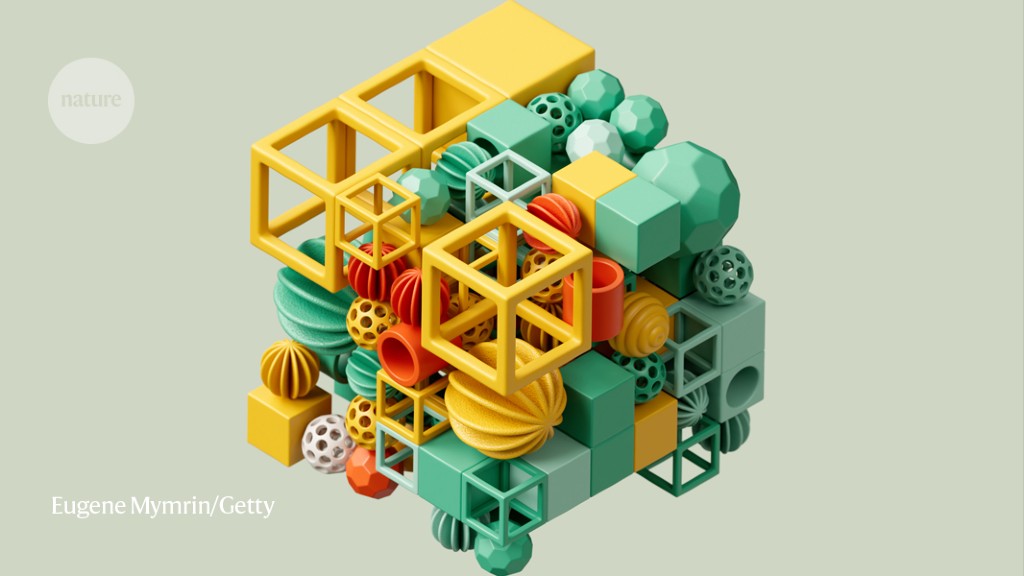Credit: Eugene Mymrin/Getty
In 2022, two free-to-use websites promised an innovation in research publishing.
Instead of fully fledged manuscripts, Octopus and ResearchEquals allow researchers to publish individual units of research — from research questions and hypotheses to code, multimedia and presentations. The concept is called modular publishing, and both sites hope to push academics to think beyond conventional publications as the primary unit of scholarly research by breaking the research cycle into pieces.
“Journals do a very good job of disseminating findings,” says Alexandra Freeman at the University of Cambridge, UK, and founder of Octopus. “But that’s not the only thing that is important in research … It’s about pulling together everything that you’ve done.”
Both platforms are free for users, and the deposited artefacts are open access by default. Users of ResearchEquals can publish any step of the research process that’s smaller than a paper, says founder Chris Hartgerink in Berlin. Each module receives its own DOI and is linked to other modules in the project to show how they’re connected. Octopus has a more structured format, with eight (naturally) publication types: research problem, hypothesis, method, results, analysis, interpretation, real-world application and peer review. Hartergink developed ResearchEquals with a US$60,000 Open Science Fellowship from the US non-profit organization the Mozilla Foundation. With a further $900,000 from the South African philanthropic organization the Shuttleworth Foundation, they launched the site in February 2022. Freeman presented her idea for an open-access modular platform for research publishing at a UK Royal Society competition in November 2018, winning £1,000 (US$1,200). With another $7,500 from Mozilla, Octopus went online last June. In August, it received a grant of £650,000 over three years from the UK funding council Research England.
A favourable alternative
Sarahanne Field, who studies responsible research practices in Europe at Leiden University in the Netherlands, has been using ResearchEquals for about a year to share presentation slides and posters. The platform compares “very favourably” with conventional publishing, Field says. “A lot of initiatives relating to the reform movement [in publishing] just move barriers around,” she explains. Gold Open Access publishing, for instance, allows readers to access articles at no charge, but places a financial burden on authors and disadvantages those with limited resources. But with ResearchEquals, she says, researchers pay only if they wish to restrict access. “Readers never have to pay anything.”
Ayushi Nayak, an archaeologist at the Max Planck Institute of Geoanthropology in Jena, Germany, says she can see a role for such platforms in scientific outreach and education. “Something like this can play a role in the broader public understanding of how scientific work gets done,” she says. But whether it can bring about a cultural shift in academia remains unclear, Nayak says, adding that she is unsure how ResearchEquals and Octopus differ from existing services such as Zenodo, Figshare, the Open Science Framework and preprint servers, all of which allow researchers to share research artefacts and different pieces of a project. (Figshare is in the portfolio of Digital Science, which is part of Holtzbrinck, the majority shareholder in Nature’s publisher, Springer Nature.)
Whatever their potential, adoption so far has been limited: Octopus has about 370 registered users, whereas ResearchEquals has around 280. But Hartgerink remains optimistic, noting that new registrations at ResearchEquals are roughly comparable with those of the Open Science Framework in its first year. “It seems like we’re on a pretty good track,” they say.








More News
US funders to tighten oversight of controversial ‘gain-of-function’ research
Bird flu in US cows: where will it end?
Daily briefing: Why exercise is good for us